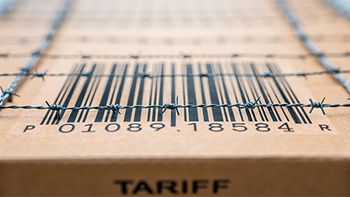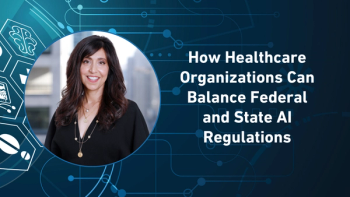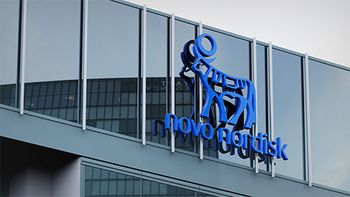
Analyzing Supply Chain Complexities
In the second part of his video interview with Pharma Commerce Editor Nicholas Saraceno, Alex Guillen, global pharma and life sciences director at Tive, describes the highlights of a recent pharma supply chain security and visibility report that his company released.
In a video interview with Pharma Commerce, Alex Guillen, global pharma and life sciences director at Tive, highlights a significant concern: the rapid advancement of technology and its potential misuse by organized crime. While technology itself is not inherently dangerous, the pharma industry's slow adoption of emerging tech, such as IoT devices, sensors, and cloud-based integration, has made it vulnerable. Guillen points out that other industries have embraced these technologies much faster, enhancing their security and efficiency, while the pharma sector has lagged behind.
This technological lag creates a critical vulnerability for pharmaceutical companies, especially in supply chain management, where the risk of cyberattacks and system breaches is growing. The fast pace of technological development, coupled with the industry's lack of preparedness to defend against these threats, makes pharma particularly susceptible to malicious activities, including hacking and data manipulation. Guillen emphasizes that the industry's relatively slow uptake of advanced technologies like IoT and cloud computing has left them exposed to potential risks, especially from organized criminal groups leveraging these tools for nefarious purposes.
Ultimately, Guillen suggests that the key challenge for the pharma industry moving forward will be to rapidly enhance its technological capabilities and adopt a more proactive approach to security. By doing so, pharma companies can better protect themselves against the evolving landscape of threats, ensuring that their supply chains remain secure and resilient in the face of these emerging risks.
Guillen also comments on a 2024 report surrounding pharma supply chain security and visibility, what needs to be done in the United States to increase manufacturing output, and much more.
A transcript of his conversation with PC can be found below
PC: Tive and BioPharma Dive recently released a 2024 report surrounding pharma supply chain security and visibility. Could you elaborate on some of the highlights of that report?
Guillen: I went through the report and for some of the responses that we had, I knew more or less that would be the trend, but for some of them I was quite surprised, actually. When we talk about, for example, one of the biggest threats that companies are seeing today is product tampering and repackaging as one of the major ones. I was trying to see, why product tempering and repackaging? If we acknowledge that the supply chain of pharma is one of the more robust today, I wouldn't expect the biggest concern being product tampering—something happening in the product—because it is an industry which, by definition, is extremely regulated and very secure. Looking back into what could the reason of these concerns could be, for example, on this point itself, it is getting more and more complex. Supply chain complexity that we have today is probably 10 times more complex than we had only 15 years ago. That complexity itself—whether it's components, APIs being manufactured in certain parts of the world, transported across the ocean, while having manufacturing spread in different parts of the world, and then having patients in another part of the world—makes this whole supply chain very complex and very difficult to manage.
That supply chain has been getting more and more complex through time. Due to this complexity, I can imagine that it becomes more and more difficult to protect product itself because the industry relies more and more on third-party operators. If you take an example of freight forwarders; before, if they could do 70% of it, now, they probably can do 20%, 30% of it, and they have to rely on third-party to do the rest. They cannot be everywhere, so they go to all the other companies. That makes it more difficult for freight-forwarders themselves to actually manage the proper products in the best, proper way. The same applies to the repackaging side.
When I see repackaging, I'm also thinking, if 20 years ago, we had a lot of pharmaceuticals, now, the high value is in biologicals. Biologicals are more complex under packaging, under temperature conditions, and therefore, it becomes more difficult for companies to actually handle those. We saw it through COVID. When it came to the minus 70 degrees Celsius product, the product has to be transported at this temperature. It is industry knowledge right now almost half of that got lost or wasted because of not having the infrastructure to manage it. I think that as temperatures go lower, in terms of new medicine and new therapies, it's going to be a bigger challenge to be able to manage that supply chain, whether it is a handling of the product or whether it is the repackaging of the material.
I think that was one of the first ones that it is driving. The second one is regarding temperature control. We can see that the industry is supposed to be extremely robust in terms of temperature management. Why, all of a sudden, is it so concerned as the biggest risk? I can only associate it with a huge amount of new therapies that are coming on board. If you take, last year in 2023, there were about a handful of cell and gene therapies approved by the FDA, and we see the amount that are going to be approved in 2026 is in the tens of thousands of therapies. This is a huge step up, so I think that as it gets more complex with ultra-cold temperatures, the companies need to progress in infrastructure. That doesn't happen so quickly. I think those areas are quite the biggest, recognized threats from the people we interviewed.
The last thing that I was surprised about is the concern about theft itself. I went in to dig into some of the information on some of that we know. Actually, the pharmaceutical industry does not have such a huge number of thefts compared to other industries like luxury. Nevertheless, this could represent a fear of the future. This case is not today, but it could happen, and why it could happen is a complexity that I think some customers are just having a hard time to grasp. So those are the three areas: two of them are quite clear—trying to figure out the reason—one of them I was surprised, but it could be just a fear for the future. I will need more analyzing to find out. Maybe at LogiPharma, we get more information on if this fear is really out there, but those are definitely the three areas that I was quite impressed with.
Newsletter
Stay ahead in the life sciences industry with Pharmaceutical Commerce, the latest news, trends, and strategies in drug distribution, commercialization, and market access.





